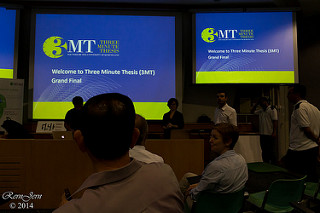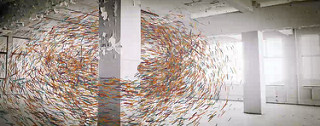Registration is now open for Western’s 3MT 2018 competition. Students from FIMS, Law and Music will compete with students from Arts & Humanities, Education, and Ivey, on Friday, March 2.
The final day to register will be Friday, February 23.
3MT (Three Minute Thesis) is a research communication competition where graduate students have 3 minutes or less to present their research and its impact to a panel of non-specialist judges and peers. The exercise develops academic, presentation, and research communication skills and supports the development of research students’ capacity to effectively explain their research in language appropriate to an intelligent but non-specialist audience.
Full details are available on the 3MT website.









